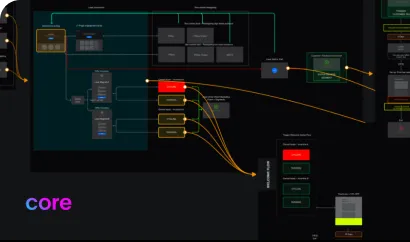





3 minute read
What are customer segments? If you need a refresh, start with Customer Segments vs Customer Personas then come back 🤓
The 6 Foundational Customer Segments, and Activating Them
Mastering your customer segmentation is not just beneficial; it's crucial to ensure profitability and maintain growth. When eCommerce brands plateau, it’s usually because they stopped evolving with their customer. By understanding and catering to the distinct needs of various shopper segments, your sales funnel will become more targeted and scale faster. Here’s an exploration of six key customer segments that every eCommerce business needs to consider:
1. High Spenders: The VIPs of Your Store
High spenders, often a small percentage of your customer base, can contribute disproportionately to your revenue. They make either large or frequent purchases, significantly surpassing the average customer lifetime value (CLV). To effectively engage this segment, focus on providing premium service, exclusive offers, and loyalty rewards. Consider them your VIPs and invest in maintaining a high level of satisfaction and loyalty to ensure continuous engagement. Equally important to retaining the high-spenders is finding more of them. The Zulu Core program learns your highest performing customer signals, and optimizes the sales funnel around their behavior. Explore how to get started with Core today.)
2. Cart Abandoners: The Ones That Got Away
Cart abandoners are prospects who add items to their cart but leave without completing the purchase. Tracking the abandonment point—whether it's due to unexpected costs, a complex checkout process, or something else—is crucial. Understanding why this segment abandons their cart will help inform strategies such as reminder emails, shipping discounts, and removing UX friction. Use our CAR exercise to map why buyers abandon their cart, and get started with solutions.
3. Coupon Lovers: Bargain Hunters
This segment loves deals and is likely to use coupons. By analyzing the correlation between coupon usage and purchasing patterns, you can identify and target this group effectively. While it’s beneficial to engage them with periodic incentives, be sure to manage this strategically to avoid diminishing your brand’s perceived value.
4. Low Spenders: Small but Steady
Low spenders may not make large purchases, but their consistent buying adds up over time. Identifying these customers involves analyzing their average order value (AOV) and engaging them with targeted offers that encourage higher spending, such as product bundles or personalized recommendations based on past purchases. Graph and compare the Low Spenders Segment CLV with the High Spenders Segment CLV using a tool like neural™ – this helps track progress and evaluate the effectiveness of Low Spenders initiatives.
5. One-Time Customers: First Impressions Count
Converting one-time buyers into repeat customers is a significant challenge but offers a great opportunity. Understanding the characteristics and preferences of repeat buyers can help tailor interactions aimed at increasing customer retention. Initial engagements, excellent service, and follow-up communications can all play a role in encouraging repeat business.
6. Inactive Customers: Rekindle Brand Affinity
These are past customers who have stopped purchasing from your store. Identifying inactive customers and understanding the reasons behind their lack of engagement are key to reactivating them. Tailored re-engagement campaigns that include personalized messages, special offers, or feedback requests can help reignite their interest.
Fine-Tuning Your Approach
Effective customer segmentation goes beyond merely knowing who your customers are; it involves actively engaging and (re)shaping their shopping experiences. By addressing the unique needs and behaviors of each segment, you not only enhance your profitability but also foster a more loyal and satisfied customer base. The key to successful segmentation lies in balance—push too hard, and you may alienate; tailor your approach thoughtfully and they are more likely to remain engaged. This balanced approach ensures that your marketing efforts are both effective and efficient, leading to sustained growth and success in today’s competitive digital landscape.
Custom Segmentation
These 6 segments are a good starting point, but a high-converting funnel will have unique segmentation that is specific to your product and vertical. Custom segments are based on demographic, psychographic and behavioral signals, and require a high degree of customer research. Zulu Core is our hands-off subscription service built exactly for this. We define top performing segments, and optimize your sales funnel around their behavior. Grow revenue, and automate your sales funnel with Core.








